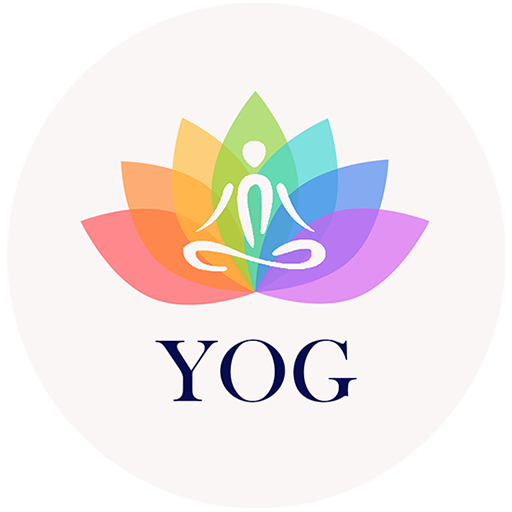What is Yoga

Yoga is an ancient science of understanding the mechanism of your body. You may think of it as an instruction manual for the human marvel. With the deep understanding that there is a symbiotic relationship between the mind and body, yoga provides practices that allow training and developing the body and mind so as to break barriers of conditioning and end suffering.
Yoga has not only been used to alleviate suffering from chronic ailments but also provide a roadmap to mental health too.
Although many have often viewed Yoga as a religious practice. We like to think of it as a set of codes to enhance our physical abilities and calm our minds. This results in reduced stress levels, and improved flexibility, strength, and balance.

History of yoga
Yoga originated roughly 5000 years ago in India. The word ‘Yoga’ originates from the Sanskrit word ‘Yuj’ which means ‘Union’. It was first seen in the Vedic text ‘Rig-veda’. It was refined and developed by Rishis (sages) who documented their practices and beliefs in the Upanishads. The venerable sage Patanjali compiled the principles of yoga in the form of aphorisms called yoga sutras
Philosophy

Just as the meaning of the word ‘Yuj’ means ‘Union’, Yoga is all about connecting with the body, mind, and spirit to reach one’s fullest potential.
Yoga is thus not only related to physical poses and exercises but also an all-around and complete guide for human existence encompassing continuous self-development working at the various level of body, mind, emotion, and energy, leading to ultimate self-realization.
Patanjali who was the first to compile the essence of yoga in his yoga sutras propounds The Eight Limbs of Yoga as.

The 8 limbs
Abstinence from indulgences
It is only when one learns to control desires and urges propagated by the mind that one is in a position to do what is required rather than what is desired
Observances of discipline
Once one is not helpless to follow through on base desires is the discipline to undertake beneficial choices and practices which is Niyama
Postures or poses
The ancients understood that the strongest of wills are let down if the vehicle of expression of the body is not up to meeting the challenges of life. Thus the incorporation of Asanas strengthens the body through which all actions and creation of one’s life are undertaken. The practices of this part of yoga are also referred to as “Hatha Yoga”
Control of Life force
Realising that life is breath and breath much more than inhalation and exhalation the masters identified the unbreakable relationship between states of being with the state of the breath. Thus control over “prana” allows finer control of states of being of human existence.
Withdrawing the senses inward
The purpose of the senses is to allow us to perceive our world and choose our interactions with it. However, they also have the capability to draw us into indulgences and endless desires for gratification. Withdrawal of the senses within sets the stage for the reduction in external distractions which is the precursor to developing the ability to concentrate and focus.
Art of effortless concentration
Just as the sharp edge of a knife focuses the force applied to perform its task so also nothing substantial can be achieved without focus and concentration. So once the senses are withdrawn inwards and not distracted, the practices which enhance concentration come into play. Initially, this concentration may seem difficult to hold but with practice, the duration for which it can be held gradually increases as distractions reduce.
Meditation
Dhyana or meditation is the logical progression of the ability to concentrate. Meditation is introduced as maintaining focus initially through guided meditations and progresses to a point where the process allows connecting to a universal consciousness by reducing the pursuit of emerging thoughts and just being a witness to them.
Equanimity
The practice of meditation over a period of time reduces the tendency of the mind to fluctuate with the ups and downs of the external environment to a point of freedom from the emotional roller coaster we all seem to be aboard. The continued practices of meditation over time extend the state of bliss experienced gradually till it becomes a continuous state of being.
The Three Margas (Paths) of Yoga
The ancient masters realized that the main dimensions of human existence were the physical body, emotions, and intellect. Thus, the entire knowledge of yoga was categorized into three broad margas.

Bhakti Yoga
Bhakti or devotion stems to channelize the most powerful of human motivators namely emotions. The path of Bhakti yoga is the path of love and devotion which lies dormant in each one's heart veiled by layers of ignorance and suffering. Once the prominent emotions of love and devotion are evoked, all thoughts and actions can only be for the greater good.

Gyana Yoga
Gyana yoga is the path of knowledge and wisdom. It emphasizes the usage of the intellect rooted in wisdom. It is this path where the sharp intellect cuts through the false illusions of the limited ego, giving you better clarity to connect with the essence of the self within and disassociate from the external elements with reasoning.

Karma Yoga
The path of perfect action with the understanding of taking responsibility for one's actions as the means of creating the desired future. Karma yoga emphasizes the performance of actions without attachment to the outcome and directs to the path of selfless service for attaining the final goal of freedom, bliss, and equanimity.

Bhakti Yoga
Bhakti or devotion stems to channelize the most powerful of human motivators namely emotions. The path of Bhakti yoga is the path of love and devotion which lies dormant in each one's heart veiled by layers of ignorance and suffering. Once the prominent emotions of love and devotion are evoked, all thoughts and actions can only be for the greater good.

Gyana Yoga
Gyana yoga is the path of knowledge and wisdom. It emphasizes the usage of the intellect rooted in wisdom. It is this path where the sharp intellect cuts through the false illusions of the limited ego, giving you better clarity to connect with the essence of the self within and disassociate from the external elements with reasoning.

Karma Yoga
The path of perfect action with the understanding of taking responsibility for one's actions as the means of creating the desired future. Karma yoga emphasizes the performance of actions without attachment to the outcome and directs to the path of selfless service for attaining the final goal of freedom, bliss, and equanimity.
Evolution of Yoga
Over the centuries different masters both traditional and contemporary have fine-tuned and adapted knowledge and practices to maintain relevance and increase its efficacy, each in turn giving their own unique innovation that either improves upon or caters to specific needs. This evolution has led to various schools and styles of yogic knowledge and practices which either distinguish themselves or project a different identity. Some of the widely known and practiced ones are listed below.

Ashtanga Yoga
Follows ancient teaching methods outlined as the 8 limbs propounded by Patanjali

Hatha Yoga
This stream of yoga caters to the body and teaches physical poses to cater to physical well-being and its undeniable influence on mental and emotional well-being.

Iyengar Yoga
Named after the founder of the style BKS Iyengar, this style of yoga focuses on finding the correct alignment of a pose with the help of props.

Kundalini Yoga
As the name suggests focuses on the activation of dormant energy called kundalini through a sequence of asanas, pranayama and meditation with the aim to release and flow through channels of energy flow called “Nadis” This flow of energy has both healing and empowering abilities which are sought to be activated.

Power Yoga
It was developed from the traditional Hatha Yoga to be an active and athletic form of yoga around the 1980s. Unlike traditional Hatha yoga where the emphasis is on attaining perfection in a particular pose and maintaining it to get the benefit from it. Power yoga focuses more on the movements and the agility with which poses are performed.

Sivananda Yoga
With a five-point philosophy as its foundation Sivananda yoga believes maintaining proper breathing, relaxation, diet, exercise, and positive thinking work together to create a healthy yogic lifestyle.

Viniyoga
Viniyoga is all about form over function, breathing and adapting to the exercise, repetition and holding, and the art and science of sequencing.

Yin Yoga
An active form of yoga, which focuses on holding static poses for long periods of time. It targets strengthening deep tissues, ligaments, joints, bones, and fascia.

Prenatal and Postnatal Yoga
These yoga poses have been specifically designed for pregnant women. It may help individuals achieve physical fitness after childbirth, and may also enhance health during pregnancy.

Restorative Yoga
Restorative yoga classes allow you to rest and relax in only four or five basic postures using props such as blankets and cushions to drop into deep relaxation without exerting much effort.
Yoga Masters
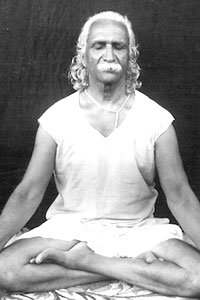
Swami Kuvalayananda
Swami Kuvalaya Nanda, the founder of Kaivalya Dhama was a prominent researcher and yoga teacher. He was instrumental in propagating the scientific aspect of yoga to the common man through his journal Yoga Mimansa.
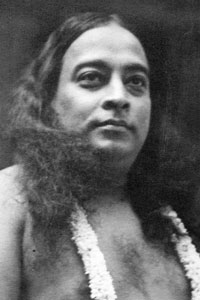
Paramahansa Yogananda
In his own quest for enlightenment, the pioneering father of Yoga Paramhansa Yogananda has been instrumental in uplifting the lives of millions through his Kriya Yoga – a powerful meditation technique that aims to help spiritual seekers attain the peak of spiritual experience.
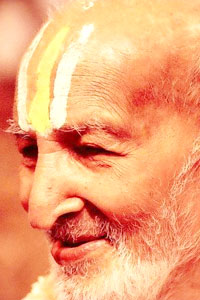
Tirumalai Krishnamacharya
A yoga teacher, ayurvedic healer, and scholar, Tirumalai Krishnamacharya built his teachings around Patanjali’s Yoga sutras, emphasizing greatly on Asana and Pranayama. Being the founder of different styles and forms of yoga, he was considered the father of Modern-Day Yoga.
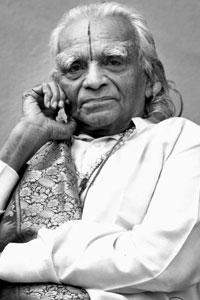
B.K.S Iyengar
Padma Vibhushan Yogacharya B.K.S Iyengar was considered one of the foremost yoga gurus. His introduction of Hatha Yoga focusing on the correct alignment of the body and making use of belts, wooden blocks, and other props has been welcomed by millions of practitioners.
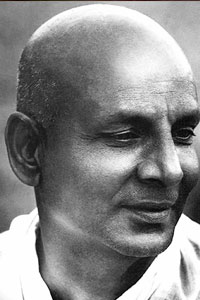
Swami Sivananda Saraswati
Swami Sivanand Saraswati founded the Divine Life Society, dealing scientifically with all aspects of Yoga and Vedanta, Universal Religion, and Philosophy. He introduced the ‘Yoga of Synthesis’ – a balanced synergy of the ‘hand’, ‘head’ and ‘heart’ through the practice of Karma Yoga, Jnana Yoga and Bhakti Yoga.
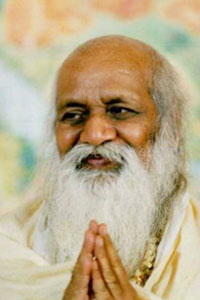
Maharishi Mahesh Yogi
Considered as Indian yoga guru and one of the principal scientists in the field of consciousness of modern times, Maharishi Mahesh Yogi was the founder of the Transcendental Meditation technique and was also responsible for reviving the knowledge of consciousness enshrined in the Vedas in its intended form.

Sri Sri Ravi Shankar
Aiming for a stress-free and a violence-free society, Padma Vibhushan Gurudev Sri Sri Ravi Shankar, founder of Art of Living has spearheaded an unprecedented worldwide movement globally through the practice of Sudarshan Kriya, a powerful breathing technique, empowering individuals to tackle challenges at global, national, community and individual levels.
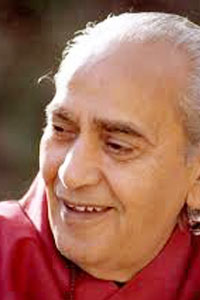
Swami Rama
A world leader in the field of yoga meditation, spirituality, and holistic health, the founder of Himalayan Institute Swami Rama was an Indian yoga guru who demonstrated the immense potential of the human being in mastering the otherwise unconscious abilities. His teachings have had a profound effect on the modern mind-body field of medicine, serving millions of spiritual aspirants.
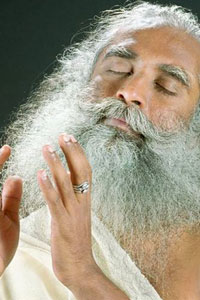
Jaggi Vasudev
Having gained a profound experience in mastering the mechanisms of life – an outcome of his profound experience on the Self, Padma Vibhushan Sadhguru Jaggi Vasudev’s major contribution has been the transformational programs relevant to contemporary minds, touching millions of lives worldwide through his educational and spiritual activities.

